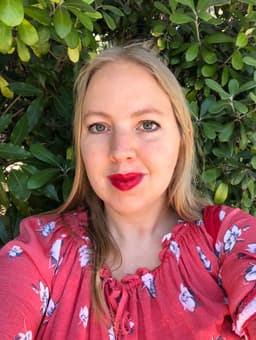Surfing the Onchainternet • TWiF #22


Okay, I admit, "onchainternet" needs work. But you get the idea, right?
The web browser was invented as a means of accessing files uploaded to "the internet," this new limitless repository of digital artifacts that could be accessed from anywhere and expanded from anywhere. Early websites debuted as organized, interactive bundles of the myriad data and media now freely available to view and manipulate. They adapted the form factor of the book and the newspaper to screens, then rapidly evolved beyond those legacy constraints.
(I'm glossing over a lot of computing and internet history for the sake of getting to my actual point. Like I'm not about to explain server architecture right now. If you were around then, or you're knowledgeable about these golden eras, forgive me for the fast-and-loose summary!)
The onchain world is working through the same process for its own new universe of assets, a term that I use here in its broadest sense. The "wallet" is but the first rudimentary implementation of a portal to the onchain world, focused on the first, most transformative advancement: internet-native money. Significantly, an analogue wallet contains that which you own, along with your markers of identity. This is what's new about "the blockchain," the onchainternet: you can own digital objects.
Sure, there was a sense in which you always could, by downloading the files. (An important sense! So far as it goes.) Think of the jokes about copy-pasting NFTs. However, as I wrote a year ago, that critique was always obtuse: "The scarce artifact is not the file, per se, but the onchain object that includes it."
Ownership is social. Ownership is not merely having something in your possession (though again, that aspect definitely matters). Ownership can be shared amongst a limited group, but it is inherently rivalrous: by its nature, ownership rules some people in and others out. Combining this fundamentally legal property with the inherent abundance of bits, bytes, and ubiquitous access is what makes crypto so revolutionary.
I know Jacob from Zora has articulated this really well in the past, but I couldn't find the right post to quote, so I'll do the short version: "free but valuable." Crypto solves this paradox. (Also, "crypto is a printing press for markets" is soooo good that I have to mention it… but kind of tangential so I won't go deep on that idea right now.)
Anyway. Nothing I said above is a novel observation. However, it's really coming to the forefront as Farcaster upgrades from "Twitter with a side of Reddit, oh also Ethereum" to a full-fledged creator platform — mini apps! — with integrated financial rails, including Solana as well.
As Coinbase Wallet and now Zapper (in public beta!) offer their own takes on the Farcaster experience, I think of Will's comment that each Farcaster client "ultimately becomes something that looks more like a social media-browser hybrid." He added:
I didn't mean browser in the sense of how they exist today, I meant the more abstract 'primary interface through which people access an open protocol that other developers build with/on'.
Coinbase is integrating Farcaster as a bet on becoming that primary interface, a la Chrome for the standard internet, or the social media giants on mobile.
Another joke we've all heard is that crypto is speedrunning financial history (notably, all the problems that led to today's TradFi regulatory regime). This is true; I often liken crypto to early Wall Street. With some twists, of course!
Well, it's worth noting that we're also speedrunning the history of digital publishing. Of the internet writ large, really.
Farcaster is the social layer of a nexus of open protocols, designed to be interoperable by default, with its monetary precursors so deeply embedded that eventually "normie" users won't need to know the difference. "Best-case outcome is that Farcaster is what Ethereum is to crypto, but for social," as Rish from Neynar told me.
When you open Farcaster, you're entering the onchainternet. In case you needed a reminder of the radical potential here 😎
Follow @weekinfarcaster.eth, and subscribe to This Week in Farcaster on Paragraph.